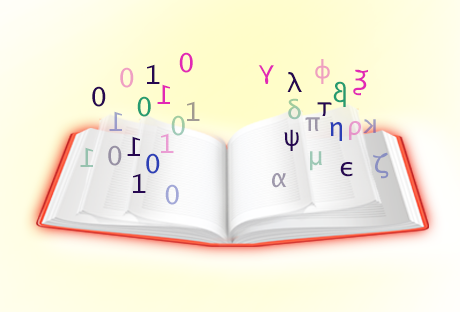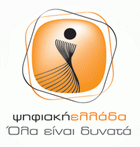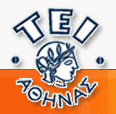JavaScript is disabled for your browser. Some features of this site may not work without it.
| dc.contributor.author | Kouis, D. | en |
| dc.contributor.author | Kyriaki Manessi, Daphne | en |
| dc.contributor.author | Giannakopoulos, G. | en |
| dc.date.accessioned | 2019-02-17T06:36:58Z | |
| dc.date.available | 2019-02-17T06:36:58Z | |
| dc.date.issued | 2019-02-17 | |
| dc.identifier.uri | http://hdl.handle.net/11400/20245 | |
| dc.rights | Αναφορά Δημιουργού-Μη Εμπορική Χρήση-Όχι Παράγωγα Έργα 3.0 Ηνωμένες Πολιτείες | * |
| dc.rights.uri | http://creativecommons.org/licenses/by-nc-nd/3.0/us/ | * |
| dc.title | LIS education and cultural heritage information management | en |
| heal.type | conferenceItem | |
| heal.language | en | |
| heal.access | free | |
| heal.publicationDate | 2019 | |
| heal.abstract | It has been more than two decades that LIS Education has been regarding information organizations (libraries, archives and museums) as an integrated field sharing a common basis of acquiring, handling and disseminating information independently of its source or substrate. In this respect LIS curriculum has treated resources at the basis of their descriptive, structural and administrative metadata; their semantic value; and the employment of technology as the means for creating a common platform for its organization, accessing and dissemination purposes. Within this framework, LIS curriculum has expanded in order to meet the informational needs of cultural heritage institutions, such as museums and cultural centers. Furthermore, their requisites to create the fundamentals for their digital information management and digital presence in the web and their obligations to supply information and communicate with each other became also part of the curriculum. The latter introduced almost simultaneously the need to operate in common environment with archives and libraries that not only hold a significant amount of related information but also have common operational attributes. The latter has brought forward issues of interoperability, communication between metadata standards, the use of controlled vocabularies and semantic representation techniques. All of the above, have established the notion in LIS Education that libraries, archives and museums are a global network of information organizations. At the same time, a series of cultural heritage projects, funded through the Horizon2020 call were focusing on employing new technologies for staging cultural heritage content. The need for metadata and semantics had acquired the expertise of information professionals. In this paper the case of the curriculum reform of the Department of Archives, Library and information Studies of the University of West Attica is presented and the specific interrelationship of the Horizon2020 Project “CrossCult ” in which the aforementioned Department participated, is viewed as a parameter for shaping a cluster of courses within its curriculum. | en |
| heal.sponsor | This publication is part of a project that has received funding from the European Union’s Horizon 2020 research and innovation programme under grant agreement No 693150 | en |
| heal.fullTextAvailability | false | |
| heal.conferenceName | The Future of Libraries | en |
| heal.conferenceItemType | full paper |
Files in this item
| Files | Size | Format | View |
|---|---|---|---|
|
There are no files associated with this item. |
|||
The following license files are associated with this item:








